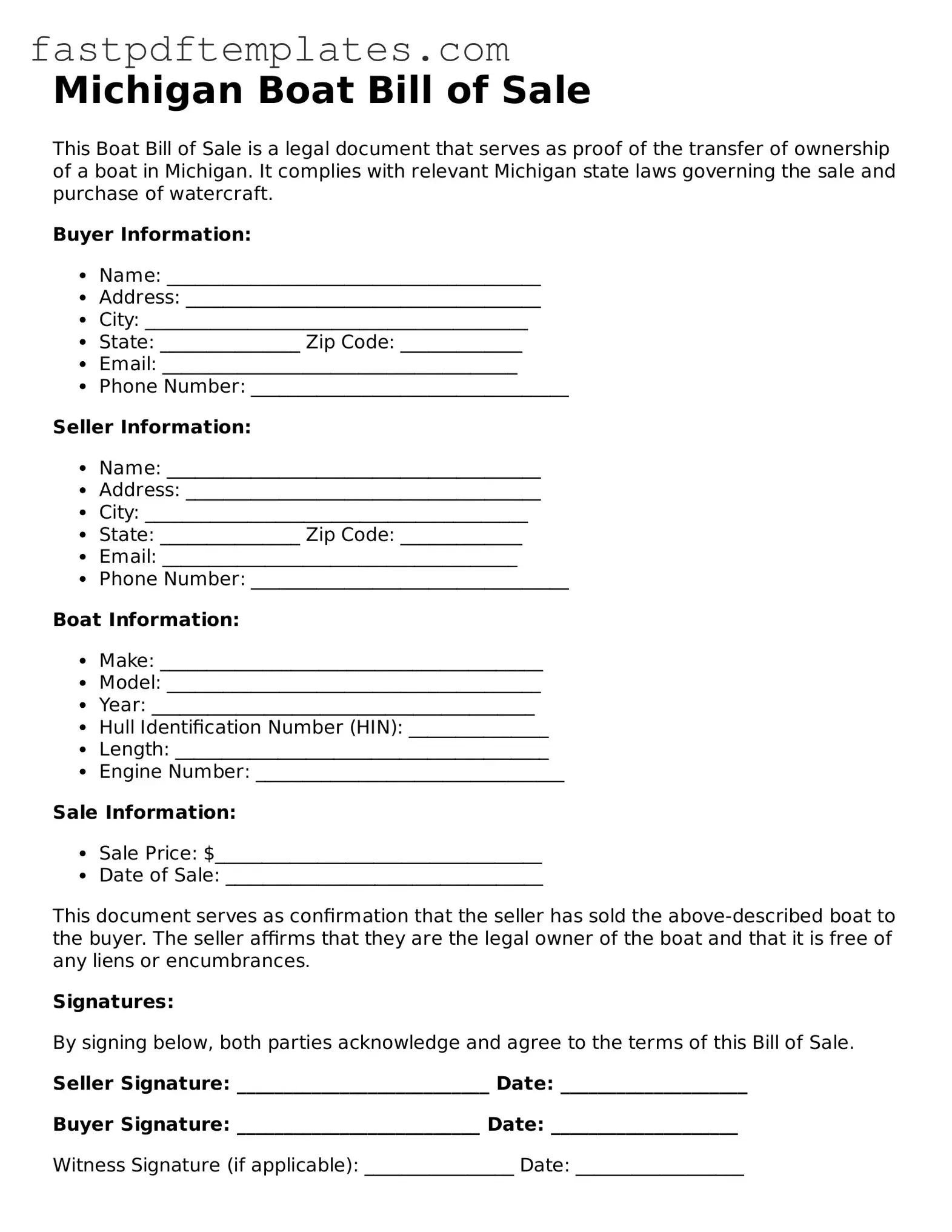The Michigan Boat Bill of Sale form shares similarities with the Vehicle Bill of Sale. Both documents serve as proof of ownership transfer from one party to another. When selling a vehicle, the seller provides the buyer with a Vehicle Bill of Sale, which includes details such as the make, model, year, and Vehicle Identification Number (VIN). Similarly, the Boat Bill of Sale includes information about the boat, such as its make, model, and hull identification number. Both forms protect the interests of the buyer and seller by documenting the transaction, which can be important for future reference or in case of disputes.
Another document akin to the Michigan Boat Bill of Sale is the Motorcycle Bill of Sale. Like the Boat Bill of Sale, this document records the transfer of ownership of a motorcycle. It contains essential information, including the motorcycle's make, model, and VIN. Both documents are vital for registering the vehicle with the state and ensuring that the new owner has clear title to the property. In both cases, the bill of sale acts as a safeguard for both parties, providing a record that can be used if questions arise about ownership or the transaction itself.
The Snowmobile Bill of Sale is also similar to the Michigan Boat Bill of Sale. Just as with boats, snowmobiles require a bill of sale to document the change in ownership. This document includes details about the snowmobile, such as its make, model, and serial number. Both forms serve the same purpose: they provide a legal record of the sale, which is necessary for registration and can help resolve any potential disputes regarding ownership. This ensures that both the buyer and seller have a clear understanding of the transaction.
Additionally, the ATV Bill of Sale bears resemblance to the Michigan Boat Bill of Sale. All-terrain vehicles (ATVs) are often bought and sold in a manner similar to boats, requiring a formal document to record the transfer of ownership. The ATV Bill of Sale includes pertinent details such as the make, model, and identification number of the ATV. This document helps protect both parties by providing a written record of the sale, which can be crucial for registration purposes and in the event of any legal issues regarding ownership.
Lastly, the Personal Property Bill of Sale is another document that aligns with the Michigan Boat Bill of Sale. This general form is used for various types of personal property transactions, including boats. It includes essential information about the item being sold, the seller, and the buyer. While the Personal Property Bill of Sale is broader in scope, it functions similarly by providing a written record of the transaction. Both documents help ensure that ownership is clearly established, protecting the rights of both the buyer and seller.

